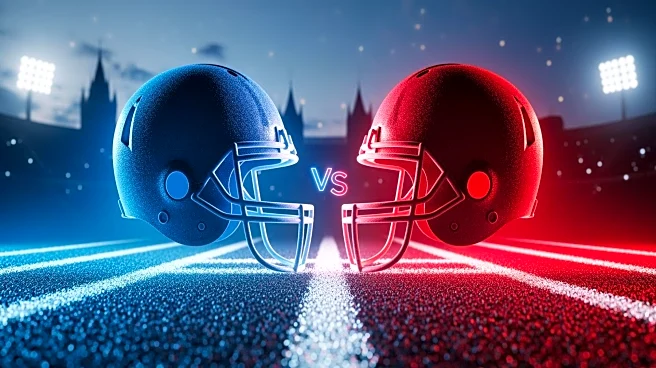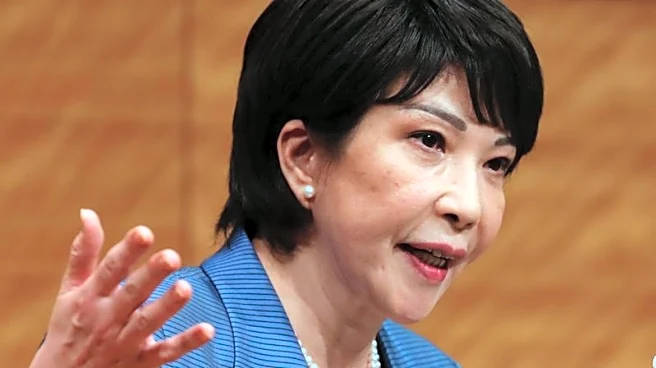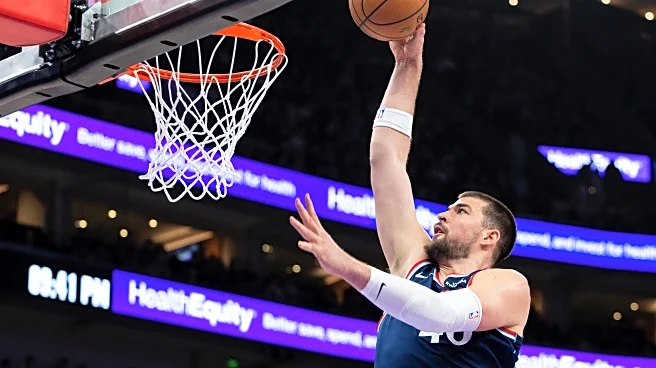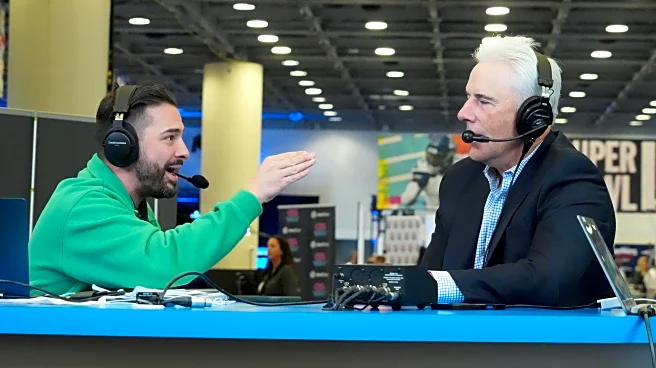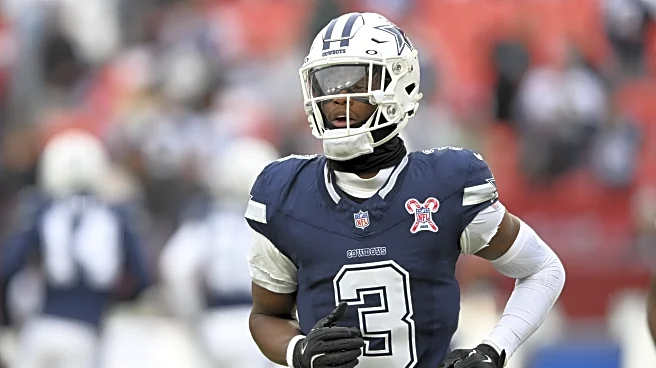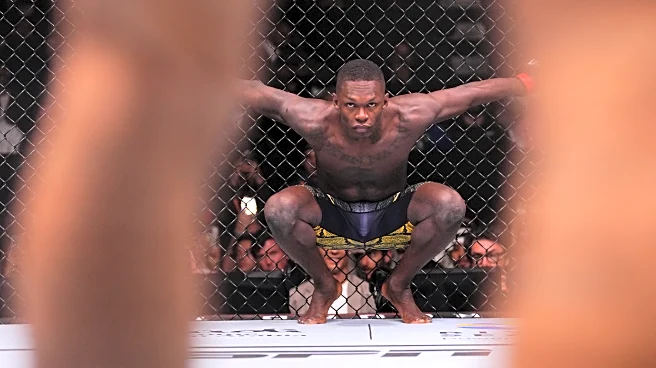What's Happening?
The Washington Commanders are set to play against the Miami Dolphins in Madrid, Spain, marking the NFL's first game in the country. Both teams enter the matchup with a 3-7 record, but the Dolphins are coming
off a significant victory against the Buffalo Bills, winning 30-13. The Commanders, however, are on a five-game losing streak and have faced challenges with injuries throughout the season. Marcus Mariota will start as quarterback for Washington due to Jayden Daniels' elbow injury. Additionally, Dan Quinn has taken over as the defensive coordinator, replacing Joe Whitt Jr., in an effort to improve the team's defensive performance.
Why It's Important?
This game represents a significant milestone for the NFL as it expands its international presence, potentially increasing its global fan base and revenue opportunities. The matchup also provides both teams a chance to break their losing streaks and improve their standings. For the Commanders, the game is crucial as they attempt to overcome injuries and regain momentum. The Dolphins, buoyed by their recent win, aim to capitalize on their current form. The outcome could influence team morale and future strategies as the season progresses.
What's Next?
Following this game, the Commanders will have a bye week, allowing them time to regroup and address ongoing injury concerns. The Dolphins will look to build on their recent success and continue their upward trajectory. Both teams will need to assess their performances and make necessary adjustments as they prepare for upcoming games. The Commanders' next game will be against the Denver Broncos, while the Dolphins will focus on maintaining their competitive edge.
Beyond the Headlines
The NFL's decision to host a game in Spain highlights the league's strategy to expand its international footprint, which could lead to more games being played abroad in the future. This move may also encourage other sports leagues to consider similar expansions, fostering a more global sports culture. Additionally, the Commanders' internal changes, such as the shift in defensive leadership, could signal broader organizational adjustments aimed at improving team performance.
